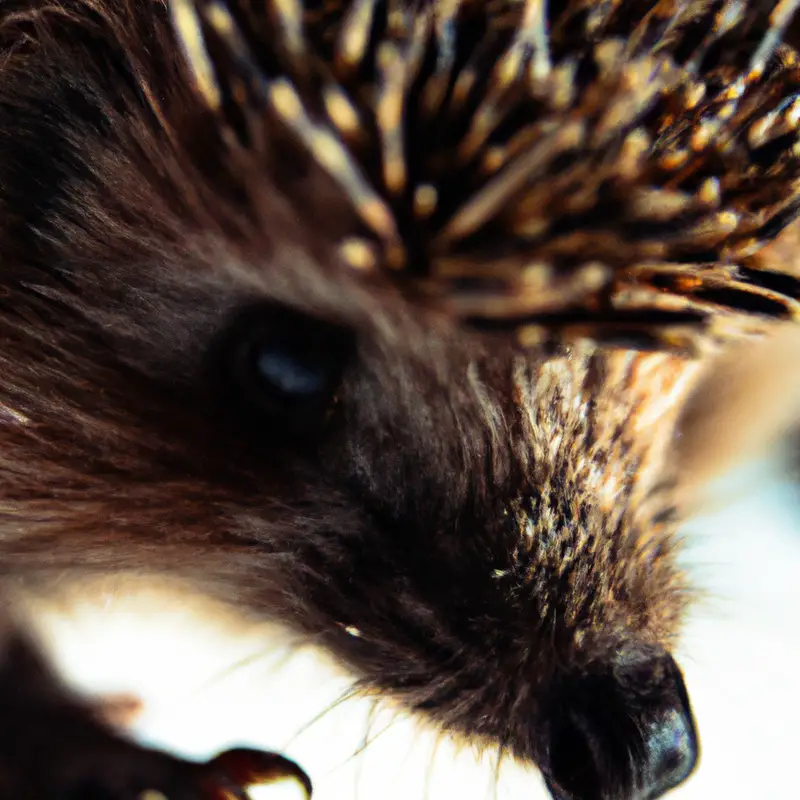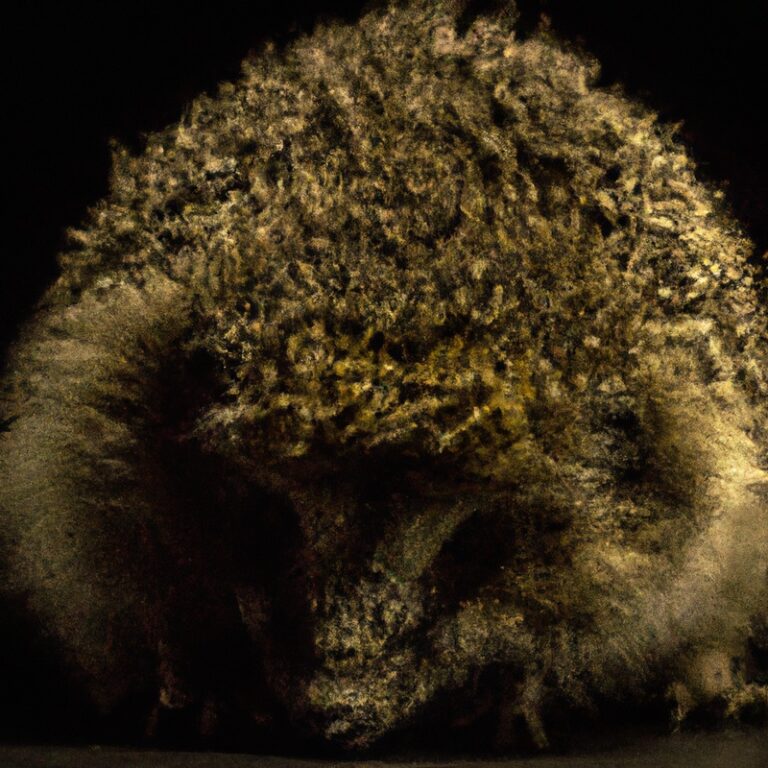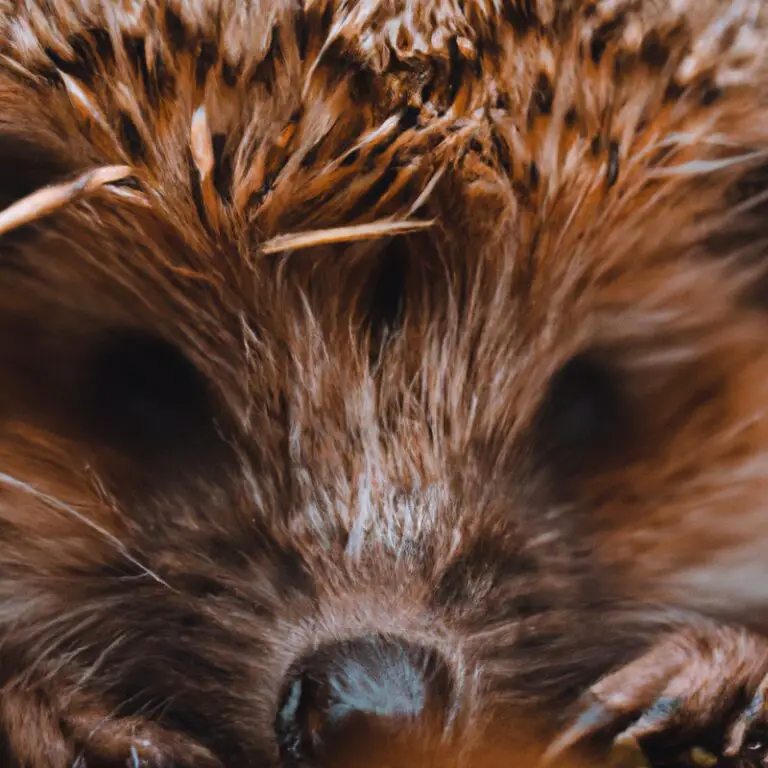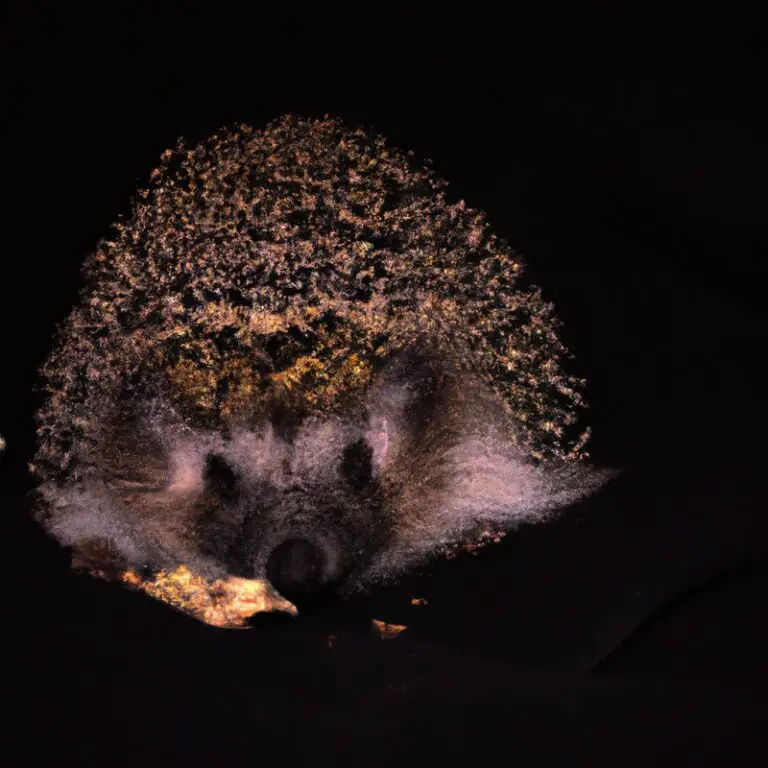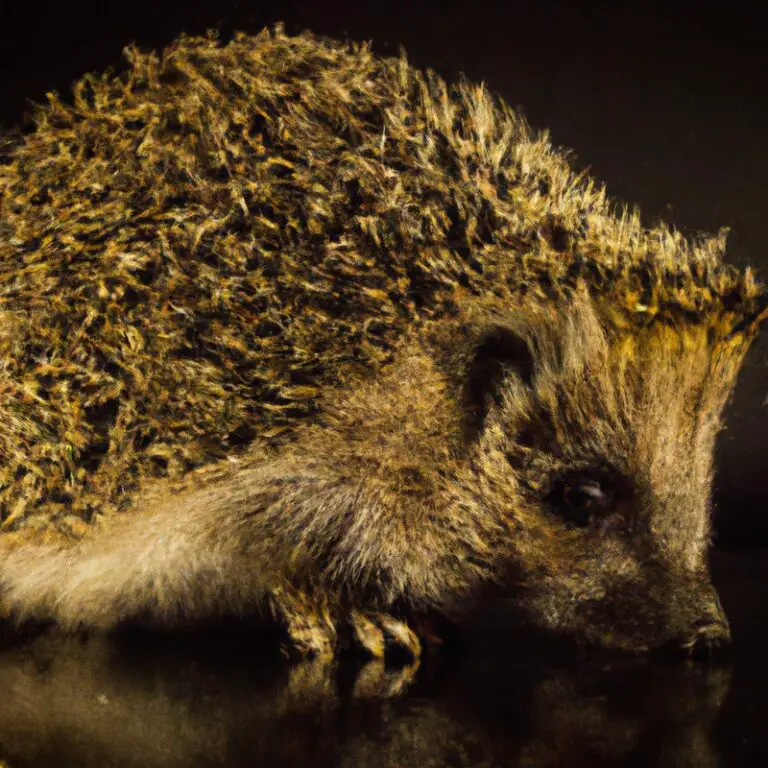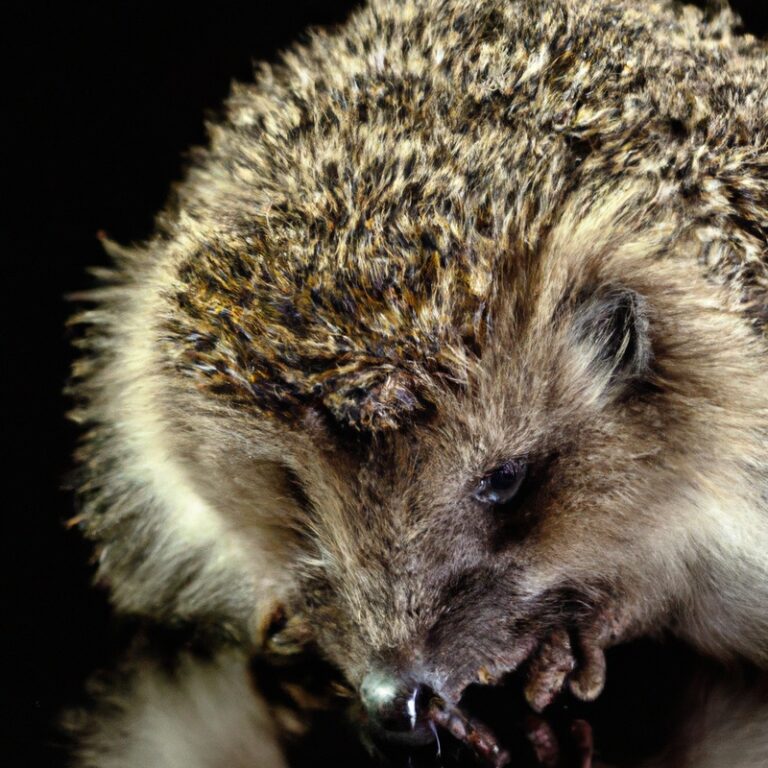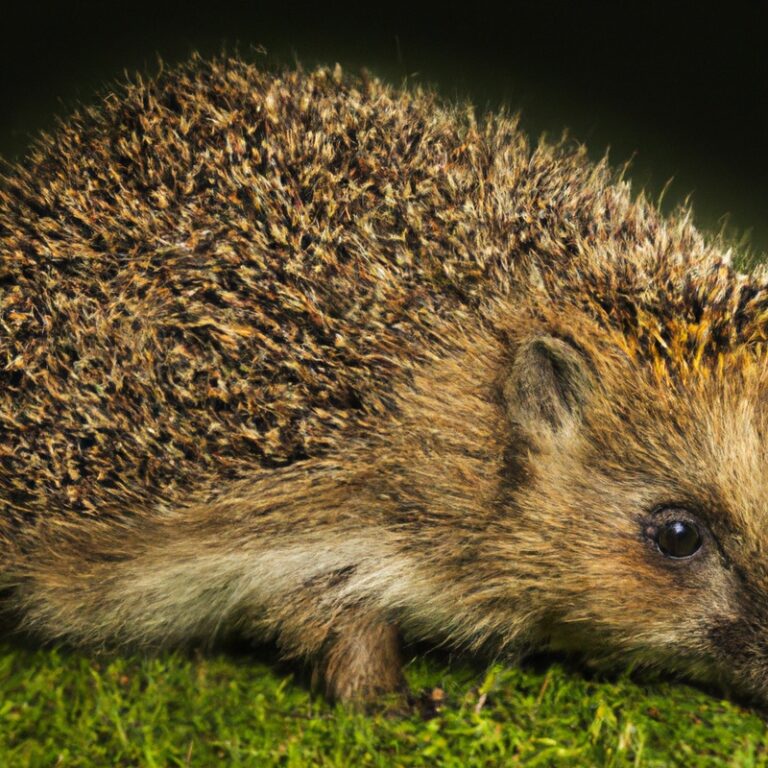What Is The Role Of Hedgehogs In Pest Control For Organic Gardening?
Key Takeaways:
- Hedgehogs play a crucial role in organic gardening by helping to control pests naturally.
- They are natural predators of insects, slugs, and snails, which are common garden pests.
- By inviting hedgehogs into your garden, you can reduce the need for chemical pest control methods.
- Providing hedgehog-friendly habitats, such as log piles and low-growing shrubs, can attract and support these beneficial creatures.
Are you tired of battling garden pests without resorting to harmful chemicals?
Look no further than our prickly friends, the hedgehogs.
These adorable creatures are more than just cute pets; they can play an important role in keeping your organic garden pest-free.
In this article, we will explore the natural diet and habits of hedgehogs, their effectiveness as natural predators, and how you can encourage them to thrive in your garden.
Get ready to discover a fascinating partnership between hedgehogs and organic gardening that will make your plants flourish while keeping those pesky pests at bay.
| Hedgehogs | Role in Pest Control |
|---|---|
| Natural Predators | Hedgehogs are natural predators of various garden pests such as slugs, snails, beetles, and insects. |
| Ecosystem Balance | By consuming large numbers of pests, hedgehogs help maintain a balanced ecosystem in organic gardens. |
| No Chemicals | Hedgehogs provide pest control without the need for chemical pesticides, making them a sustainable and eco-friendly solution. |
| Effective Deterrent | Hedgehogs can help deter pests by their mere presence, as many pests avoid areas inhabited by these spiky creatures. |
| Protection of Plants | By controlling pests, hedgehogs can prevent damage to plants, ensuring healthier growth and higher yields. |
| Low Maintenance | Once hedgehogs find a suitable habitat, they require minimal maintenance and can provide pest control for several years. |
Introducing Hedgehogs as Pest Control in Organic Gardening
Hedgehogs can play a valuable role in pest control for your organic garden. Consider introducing these spiky creatures to help manage unwanted pests naturally.
What Are Hedgehogs?
Hedgehogs are small mammals that are known for their spiky quills, which cover their bodies.
They are found in various parts of the world, including Europe, Asia, and Africa.
Hedgehogs are nocturnal animals, meaning they are most active during the night.
They have a diet that mainly consists of insects, but they also eat other small creatures like worms, slugs, and snails.
Hedgehogs are highly adaptable creatures and can live in different habitats, including gardens and forests.
They play a beneficial role in organic gardening by helping to control pests naturally.
Hedgehogs’ Natural Diet and Habits
Hedgehogs have a natural diet that consists mainly of insects, worms, and other small invertebrates.
They use their sharp teeth to catch and eat their prey.
Hedgehogs are nocturnal animals, so they are most active at night when their food sources are readily available.
They have a keen sense of smell, which helps them locate their prey.
Hedgehogs are also known to eat fruits, berries, and eggs, but these make up a small portion of their diet.
Their natural habits include foraging for food, nesting in bushes or burrows, and hibernating during the winter months.
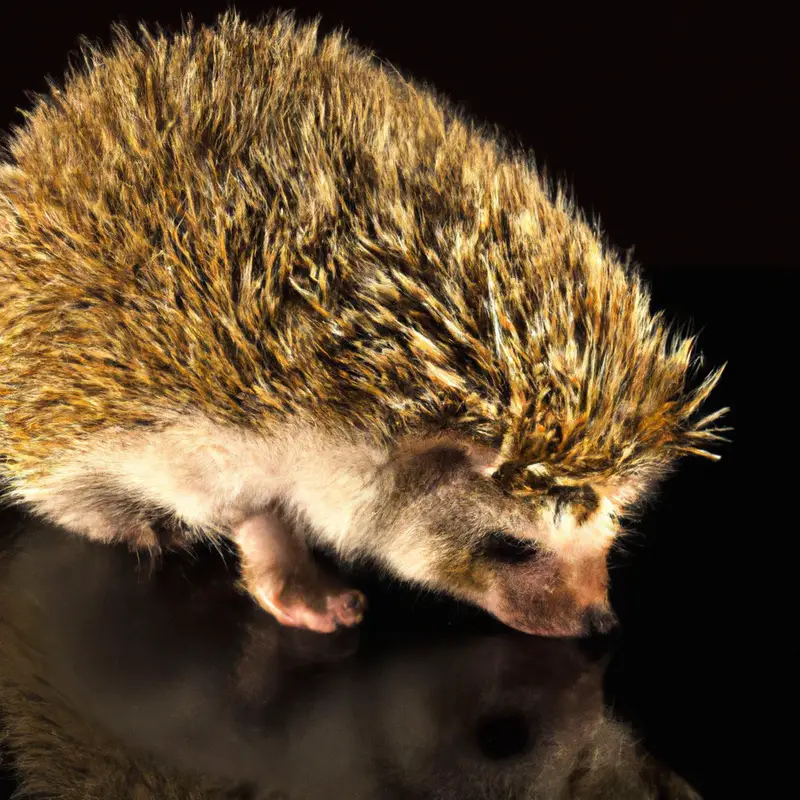
Understanding the Role of Hedgehogs in Pest Control
Hedgehogs play a crucial role in pest control for organic gardening.
Hedgehogs as Natural Predators
Hedgehogs are natural predators that can play a valuable role in pest control. They have a diet that consists of insects, slugs, snails, and even small rodents.
This makes them effective in controlling populations of garden pests that can damage plants.
Hedgehogs have a keen sense of smell and can detect pests hiding in the soil. They are also skilled diggers, allowing them to access pests that may be underground.
By attracting and providing a safe habitat for hedgehogs in your garden, you can naturally reduce the need for chemical pest control methods.
How Hedgehogs Control Insect Pests
Hedgehogs control insect pests by consuming them as part of their diet. These prickly creatures are natural predators of many insects, including beetles, slugs, snails, and even certain species of harmful garden pests.
By hunting and eating these pests, hedgehogs help to naturally regulate their populations in your garden.
This can lead to a healthier ecosystem and reduce the need for chemical pesticides. So, having hedgehogs around can definitely be beneficial for organic gardening!
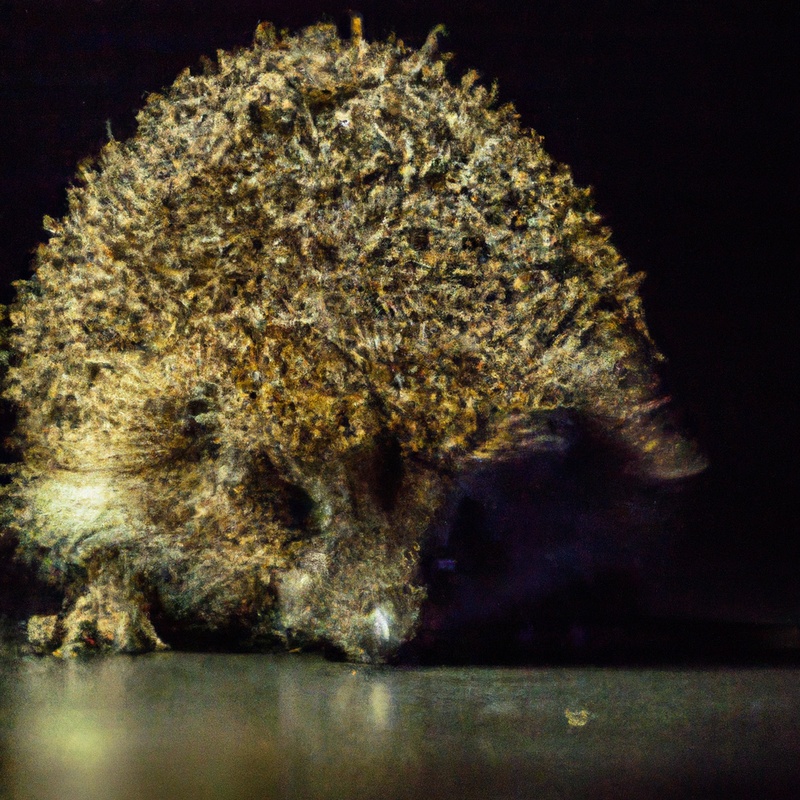
Hedgehogs’ Effectiveness in Organic Gardening
Hedgehogs are highly effective in organic gardening as they naturally control pests. They have a diet that consists of insects, slugs, snails, and other garden pests.
Hedgehogs are known to eat hundreds of insects in a single night, helping to keep your garden free from damaging pests.
Their presence can reduce the need for chemical pesticides and promote a healthier, more sustainable garden ecosystem. By providing a hedgehog-friendly environment, you can encourage these helpful creatures to take up residence in your garden and assist with pest control.
Encouraging Hedgehogs in Your Organic Garden
To invite hedgehogs into your organic garden, create a hedgehog-friendly environment.
Creating a Hedgehog-Friendly Environment
Creating a hedgehog-friendly environment is all about providing the necessary elements for these adorable creatures to thrive in your garden. Here are a few simple steps you can take:
- Leave patches of your garden untidy, with natural debris like fallen leaves and twigs. These serve as hiding places and homes for hedgehogs.
- Install a small wildlife pond or provide a shallow dish of water for them to drink from.
- Avoid using pesticides and herbicides that can harm hedgehogs and their food sources.
- Create small gaps or holes in fences or walls to allow hedgehogs to move freely between gardens.
- Offer a variety of natural food sources, including a mix of insects, slugs, snails, berries, and cat/dog food (but avoid fish-based varieties.
By implementing these measures, you can make your garden a safe and welcoming haven for hedgehogs.
Providing Shelter and Food for Hedgehogs
Hedgehogs can be valuable allies in organic gardening by controlling pests naturally. To attract these helpful creatures to your garden, provide them with shelter and food.
Create small, secluded areas with piles of leaves, stones, or logs where hedgehogs can hide and nest.
Avoid using pesticides or chemicals in your garden, as this can harm hedgehogs and their food sources. Make sure to leave out dishes of fresh water and low-protein cat or dog food to supplement their diet.
Minimizing Hazards for Hedgehogs
To minimize hazards for hedgehogs in your garden, keep these tips in mind:
- Avoid using chemical pesticides and herbicides, as they can be harmful to hedgehogs.
- Ensure that any fencing around your garden is hedgehog-friendly, with small enough gaps for them to pass through.
- Remove any items that hedgehogs can get stuck in, such as garden netting or discarded plastic containers.
- Create hedgehog-friendly habitats, such as log piles, leaf piles, and wildflower areas for them to forage and nest in.
- Be mindful when using lawnmowers and strimmers, as hedgehogs may be hidden in long grass or under bushes.
By taking these precautions, you can create a safe environment for hedgehogs to thrive in your garden.
Frequently Asked Questions about Hedgehogs and Pest Control in Organic Gardening
Can Hedgehogs Control All Types of Garden Pests?
Hedgehogs are great allies in organic gardening, but they cannot control all types of garden pests. They are particularly effective at controlling insects like slugs, snails, beetles, and caterpillars.
However, they may not be able to handle larger pests like birds, rabbits, or deer.
Additionally, hedgehogs are not effective against underground pests like moles. To maximize the benefits of hedgehogs, it is recommended to create a hedgehog-friendly garden environment with areas for them to hide and nests for them to rest in.
Are There Any Risks or Drawbacks to Having Hedgehogs in the Garden?
Having hedgehogs in your garden can be beneficial for pest control, but there are a few risks and drawbacks to consider.
- Damage to plants: Hedgehogs may dig or uproot plants in search of food or creating nests.
- Predation on beneficial insects: While hedgehogs primarily eat insects, they may also consume beneficial ones like ladybugs or pollinators.
- Potential for diseases: Hedgehogs can carry parasites or diseases like ticks or fleas, which can be transmitted to other animals.
To minimize these risks, provide ample hiding places, avoid using pesticides, and regularly clean hedgehog feeding stations. Overall, the benefits of having hedgehogs usually outweigh the drawbacks.
How Can I Attract Hedgehogs to My Organic Garden?
To attract hedgehogs to your organic garden, provide shelter by creating hedgehog-friendly areas with piles of leaves, logs, or brushwood. Leave small gaps in fences to allow access.
Hedgehogs need water, so include a shallow dish with fresh water.
Avoid using pesticides and chemicals that can harm them. Additionally, avoid using slug pellets, as hedgehogs often eat slugs and snails.
Finally, provide a safe passage by creating small holes in walls or fences for hedgehogs to move freely between gardens.
Can Hedgehogs Be Harmful to Plants or Garden Structures?
Hedgehogs can be beneficial for organic gardening because they primarily eat insects, slugs, and other garden pests. However, they can cause damage to plants and garden structures if they decide to burrow in certain areas.
To mitigate this, you can create hedgehog-friendly areas using wood piles or dedicated hedgehog houses, which will help guide them away from sensitive parts of your garden.
Additionally, using protective measures like fencing can help prevent any potential damage. It’s important to strike a balance between encouraging hedgehogs in your garden and safeguarding your plants and structures.
Final Verdict
Hedgehogs can play a vital role in pest control for organic gardening. These small mammals are natural predators that feed on a variety of garden pests, including insects, slugs, and snails.
By attracting and supporting hedgehogs in your garden, you can create a natural and sustainable method of pest control that doesn’t rely on harmful chemicals.
To encourage hedgehogs, create a hedgehog-friendly environment, provide shelter and food, and minimize hazards. Overall, utilizing hedgehogs as pest control in organic gardening can help maintain a healthy and thriving garden ecosystem.

